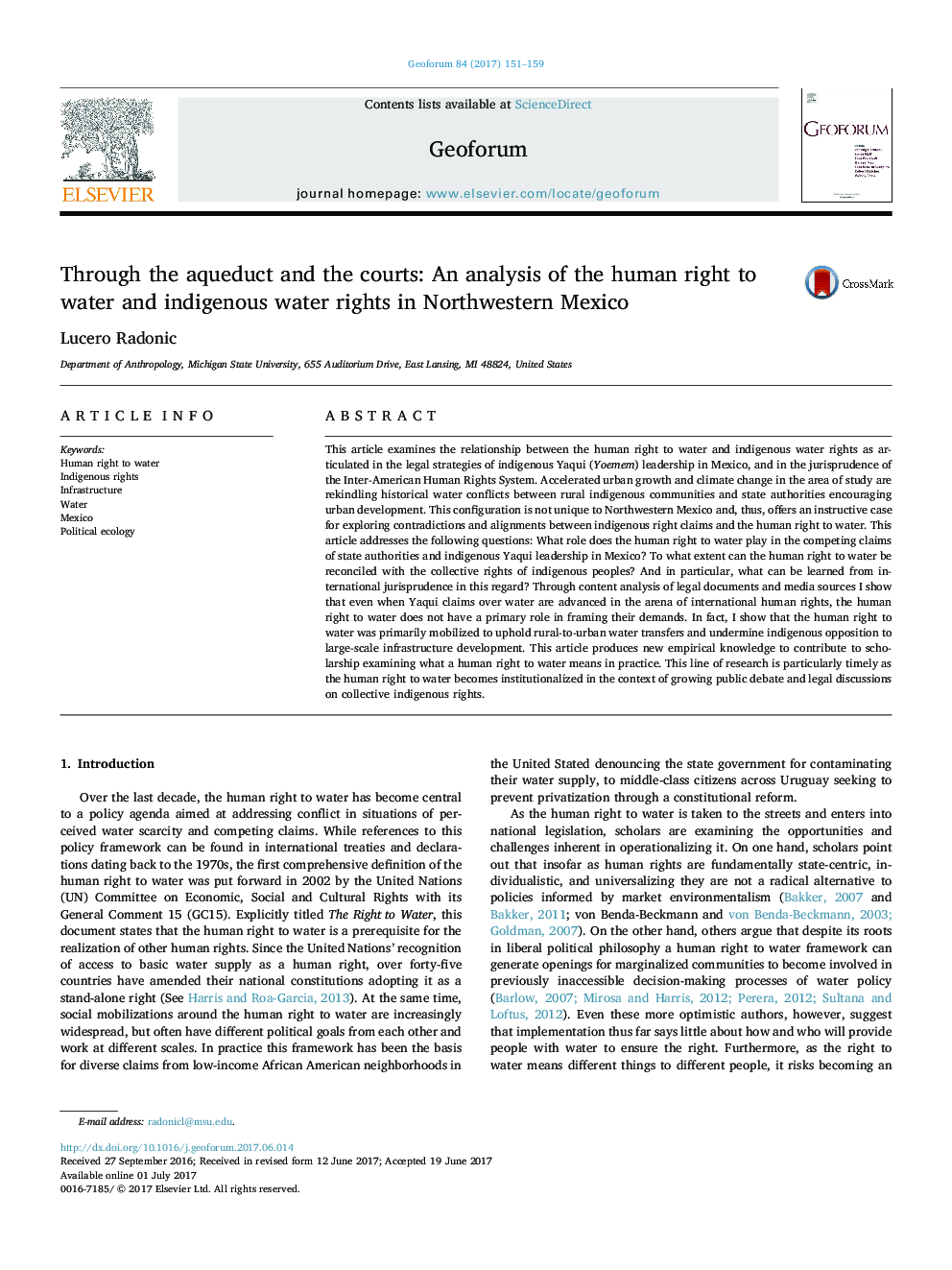| کد مقاله | کد نشریه | سال انتشار | مقاله انگلیسی | نسخه تمام متن |
|---|---|---|---|---|
| 5073285 | 1477105 | 2017 | 9 صفحه PDF | دانلود رایگان |
- Risk that human right to water be mobilized against indigenous rural communities.
- International law connects the human right to water to rights to life and property.
- Human right to water does not have a primary role in Yaqui struggles over water.
- Evolutionary reading of property can support indigenous collective water rights.
This article examines the relationship between the human right to water and indigenous water rights as articulated in the legal strategies of indigenous Yaqui (Yoemem) leadership in Mexico, and in the jurisprudence of the Inter-American Human Rights System. Accelerated urban growth and climate change in the area of study are rekindling historical water conflicts between rural indigenous communities and state authorities encouraging urban development. This configuration is not unique to Northwestern Mexico and, thus, offers an instructive case for exploring contradictions and alignments between indigenous right claims and the human right to water. This article addresses the following questions: What role does the human right to water play in the competing claims of state authorities and indigenous Yaqui leadership in Mexico? To what extent can the human right to water be reconciled with the collective rights of indigenous peoples? And in particular, what can be learned from international jurisprudence in this regard? Through content analysis of legal documents and media sources I show that even when Yaqui claims over water are advanced in the arena of international human rights, the human right to water does not have a primary role in framing their demands. In fact, I show that the human right to water was primarily mobilized to uphold rural-to-urban water transfers and undermine indigenous opposition to large-scale infrastructure development. This article produces new empirical knowledge to contribute to scholarship examining what a human right to water means in practice. This line of research is particularly timely as the human right to water becomes institutionalized in the context of growing public debate and legal discussions on collective indigenous rights.
Journal: Geoforum - Volume 84, August 2017, Pages 151-159
